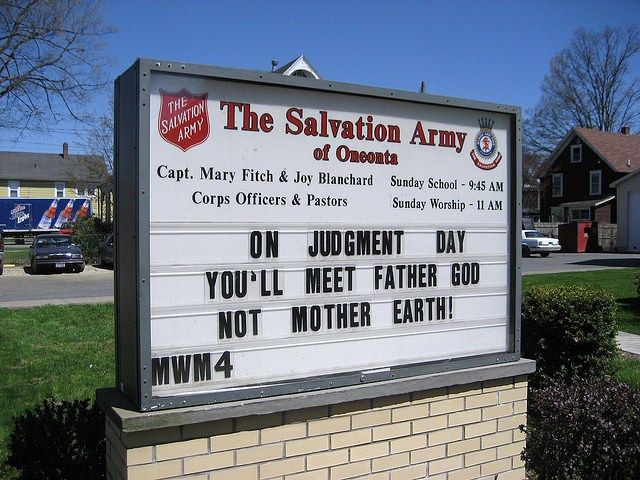
As the economic slow-down due to the coronavirus pandemic shutters industry, air pollution and carbon emissions are dropping. A lot of people have asked what this means for carbon emissions and climate change. Here is a short explainer. (thread)
First, don't look to short-term monthly concentrations for evidence of a drop in human emissions. Over timescales shorter than a year, CO2 is primarily controlled by the biosphere which releases (and absorbs, which is key) ~10x more carbon than humans. 

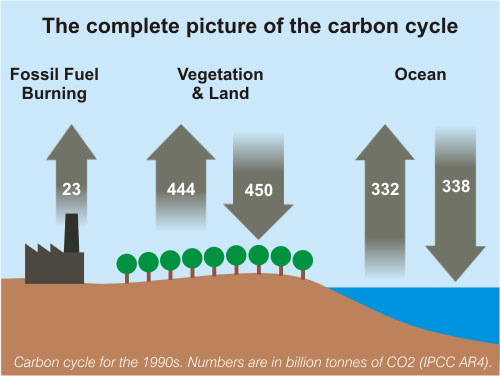
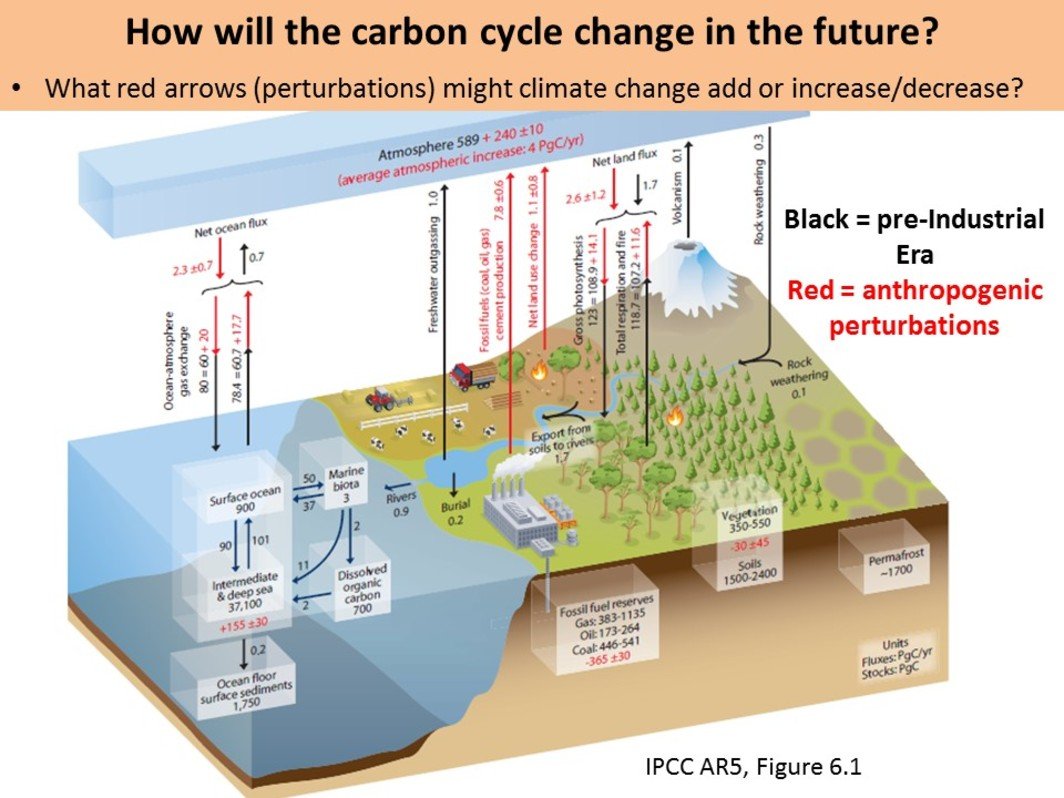
Second, the long-term upward trend in CO2 is the result of CUMULATIVE, not annual emissions: every single brick we've been putting on the pile every month since the dawn of the Industrial Era. Today, adding a brick 25% smaller for 1-2 months isn't going to make a big difference. 

Third, as the pandemic passes, carbon emissions will most likely bounce right back up again, and possibly then some, as industry does its best to make up for lost productivity, income, and wages. So any slowdown is temporary at best.
So does that mean it's hopeless?! If even such extreme, draconian measures to alter human behaviour as we've seen the last few months aren't enough to impact climate change, how do we even have an ice cube's chance of fixing it long-term?! NO! In fact, exactly the opposite! ...
The reason why the pandemic isn't likely to reduce carbon ems long-term is because those ems weren't reduced by sustainable changes in human behaviour, by increasing efficiency, replacing fossil fuels w clean energy, and drawing carbon down into the soil. drawdown.org
...instead, carbon emissions are currently being reduced by human behaviour changes that are not sustainable.
BUT (and here's the hopeful part), if the emissions reductions HAD been achieved through true climate solutions, then the impact on climate would have been ENORMOUS.
BUT (and here's the hopeful part), if the emissions reductions HAD been achieved through true climate solutions, then the impact on climate would have been ENORMOUS.
Very roughly: estimates for reductions in China's Feb emissions range from about 15-25%. They're the world's top emitter on an annual basis (the US is #1 cumulatively). Let's assume that globally, the pandemic leads to worldwide reductions of 10-15% for a month or two.
Emission pathways to a 1.5oC future require around 40% reductions in carbon emissions by 2030. So if the changes we're seeing today were actually permanent, that would mean we'd already be 25-38% of the way there in JUST A FEW MONTHS. That's AMAZING!!! 
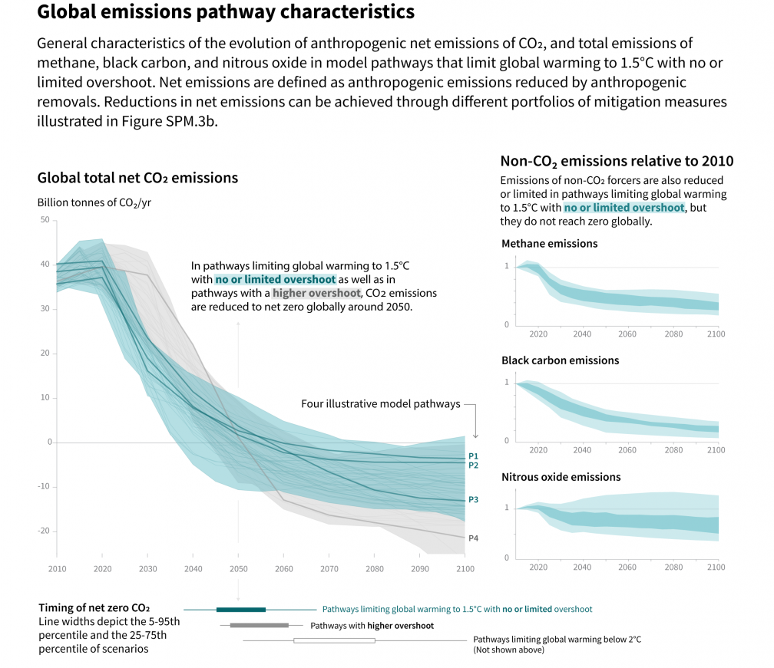
The other positive thing this pandemic has taught us is that, when disaster stares us in the eyeballs, we ARE ready to act at a scale commensurate with the threat. With climate change, though, by the time we get to that point, it's more than likely going to be too late.
And that's why it's so important to clearly communicate the real, present, and relevant risks of climate change to combat the three challenges of psychological distance: the myths that we think it's a future issue, that only affects people far away, or issues I don't care about.
The reality is that climate impacts are here. They are now. And they matter to all of us already, because they affect everything we already care about. Read: foreignpolicy.com/2017/05/31/eve…
PS. Many have also asked about the short-term effect of reduced air pollution and aerosols, which act to cool the planet. Could their reductions cause a short-term temperature spike and, if so, how much? I've many colleagues better equipped to answer this, but back-of-envelope:
According to NOAA's Annual Greenhouse Gas Index, radiative forcing due to well-mixed greenhouse gases was +3.1 W/m2 as of 2018. According to IPCC, best estimates of negative forcing due to aerosols is slightly below 1 W/m2 (see below). 
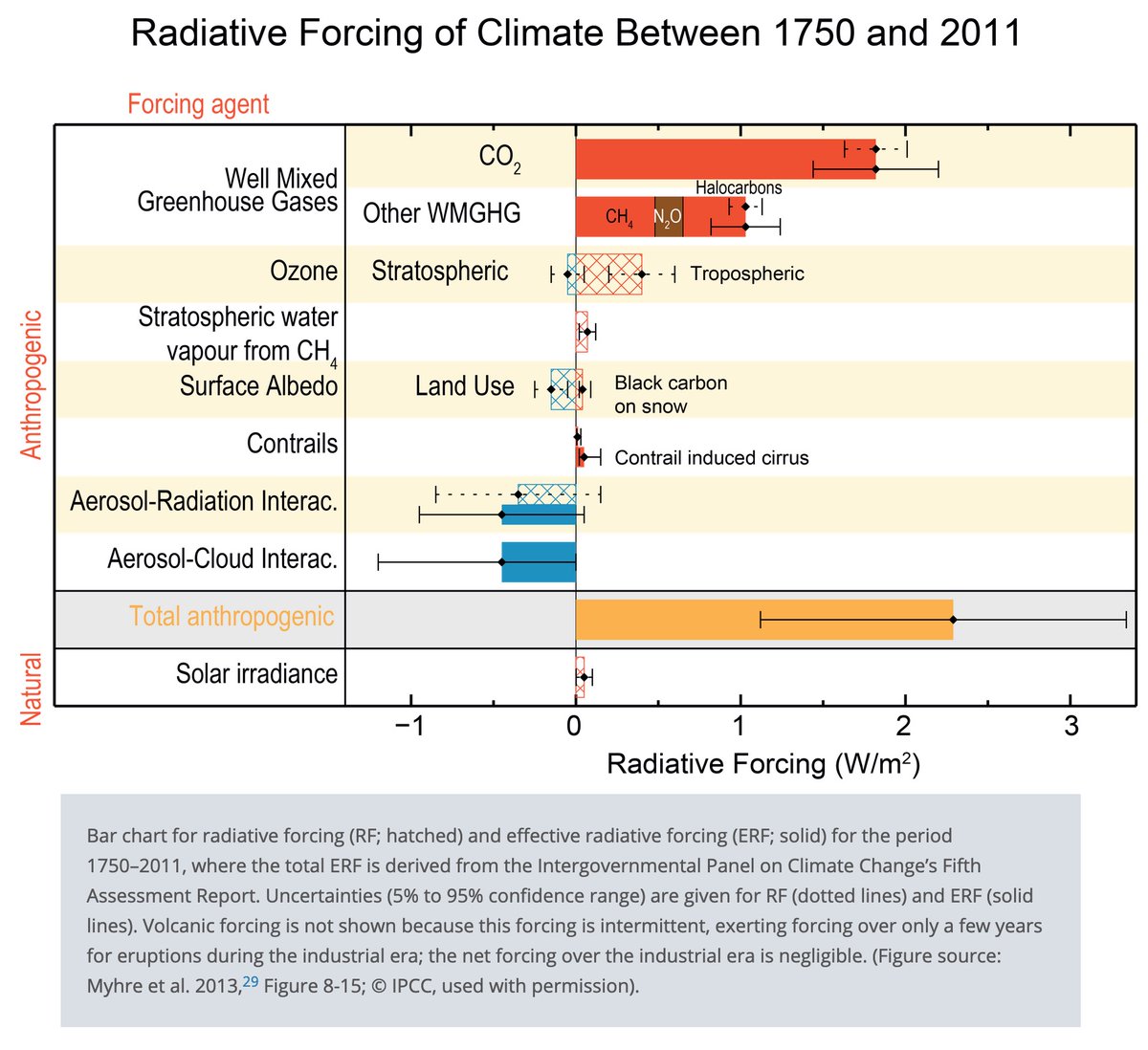
As above, assume the economic slow-down leads to a 15% global reduction in fossil fuel combustion + associated emissions. This recent study by Lelieveld et al estimates that removing ALL fossil-fuel related aerosols would increase warming by 0.5C. pnas.org/content/116/15…
..and we remove all pollution-related aerosols, warming wd increase by 0.7C total. So assuming 15% of 0.7C is temporarily achieved, that cd potentially at the most lead to a short-term spike of 0.1C. Of course it's a lot more complicated than that. But bottom line...it's not much
The real question is this: will we use our response to the pandemic as an opportunity to innovate for the future, or to increase our grip on the past? That decision is the one that will most profoundly impact our ability to tackle climate change. technologyreview.com/s/615338/coron…
For a video version of this thread, please check out our newest special Global Weirding episode, "The Pandemic's Impact on Climate Change"
• • •
Missing some Tweet in this thread? You can try to
force a refresh





